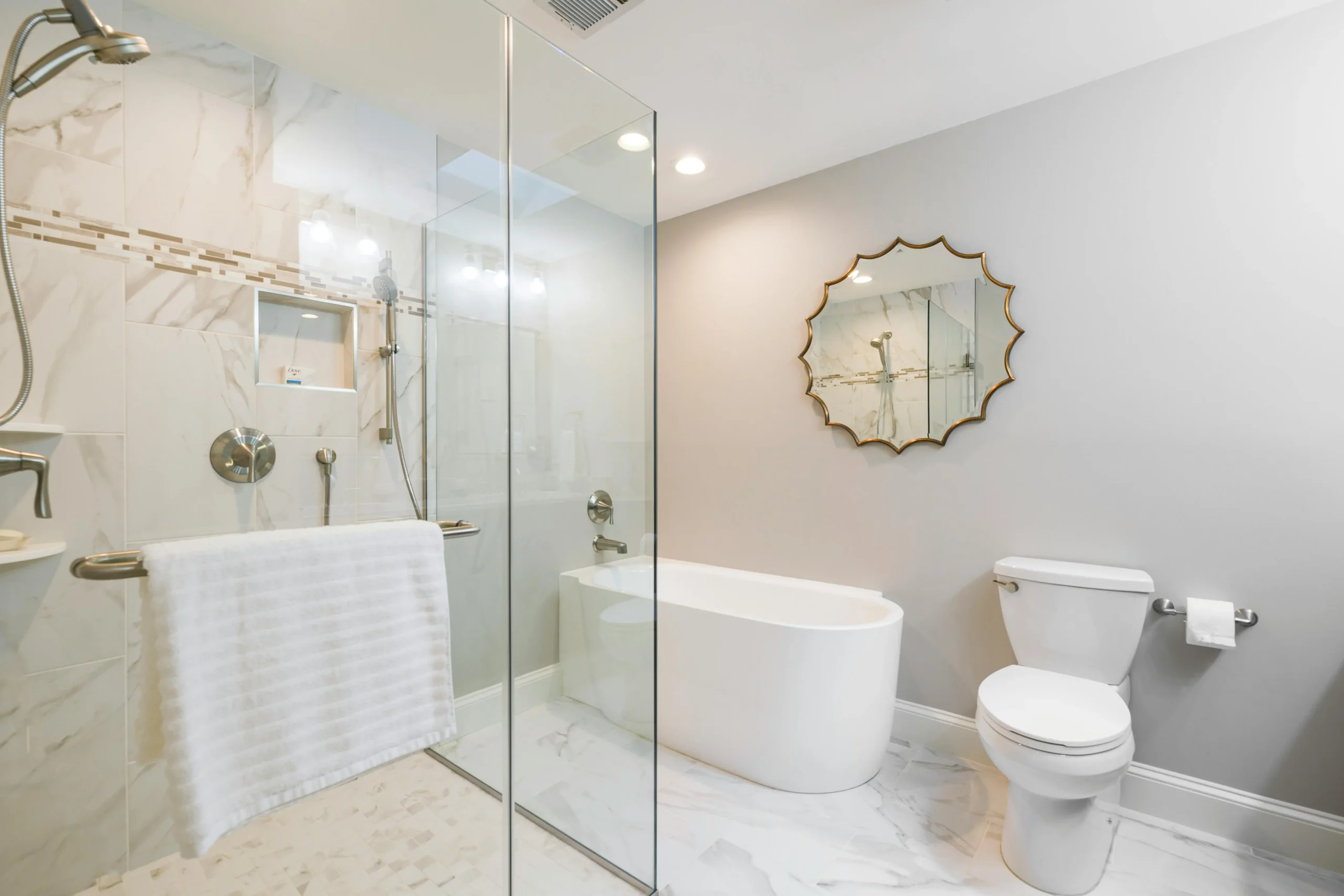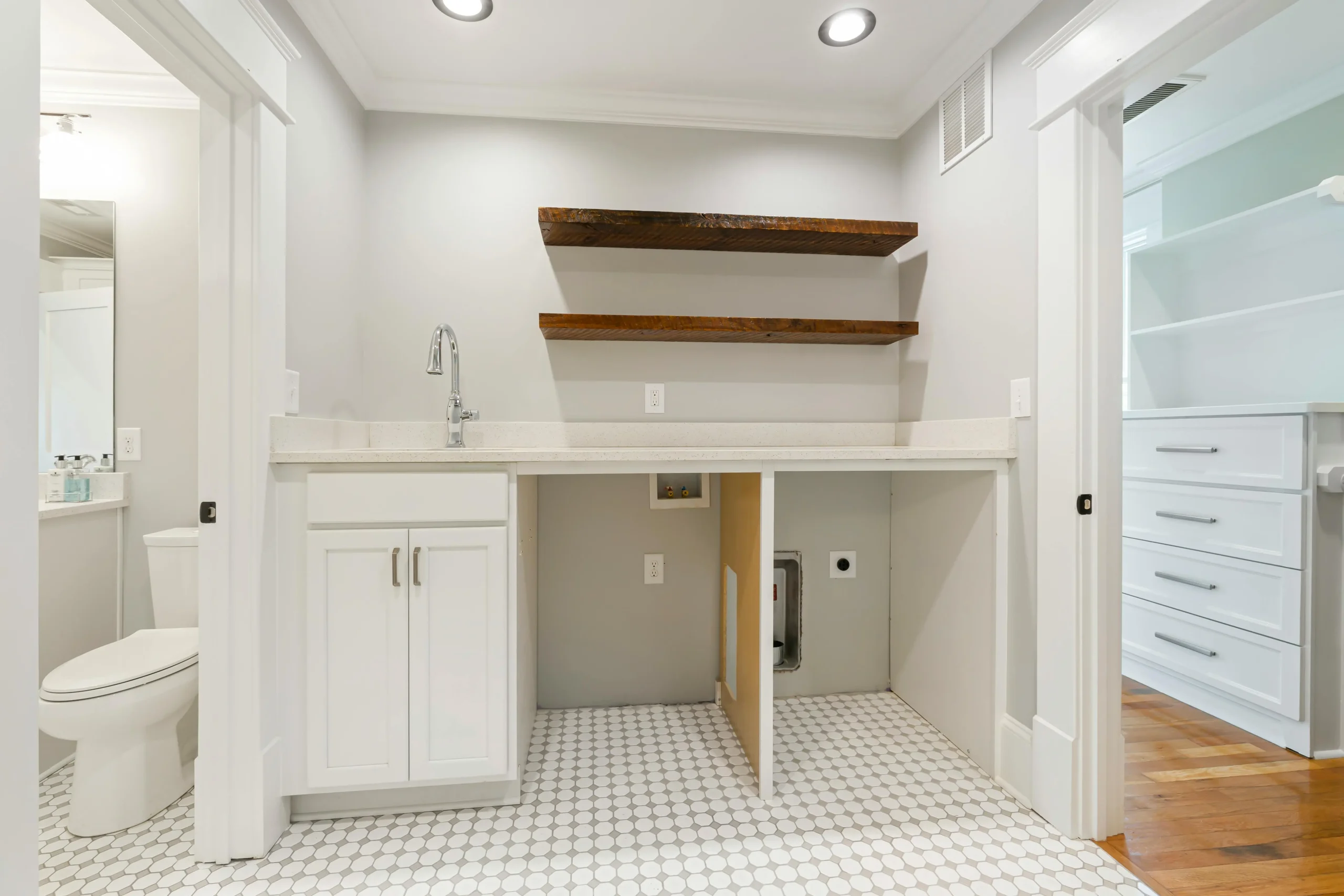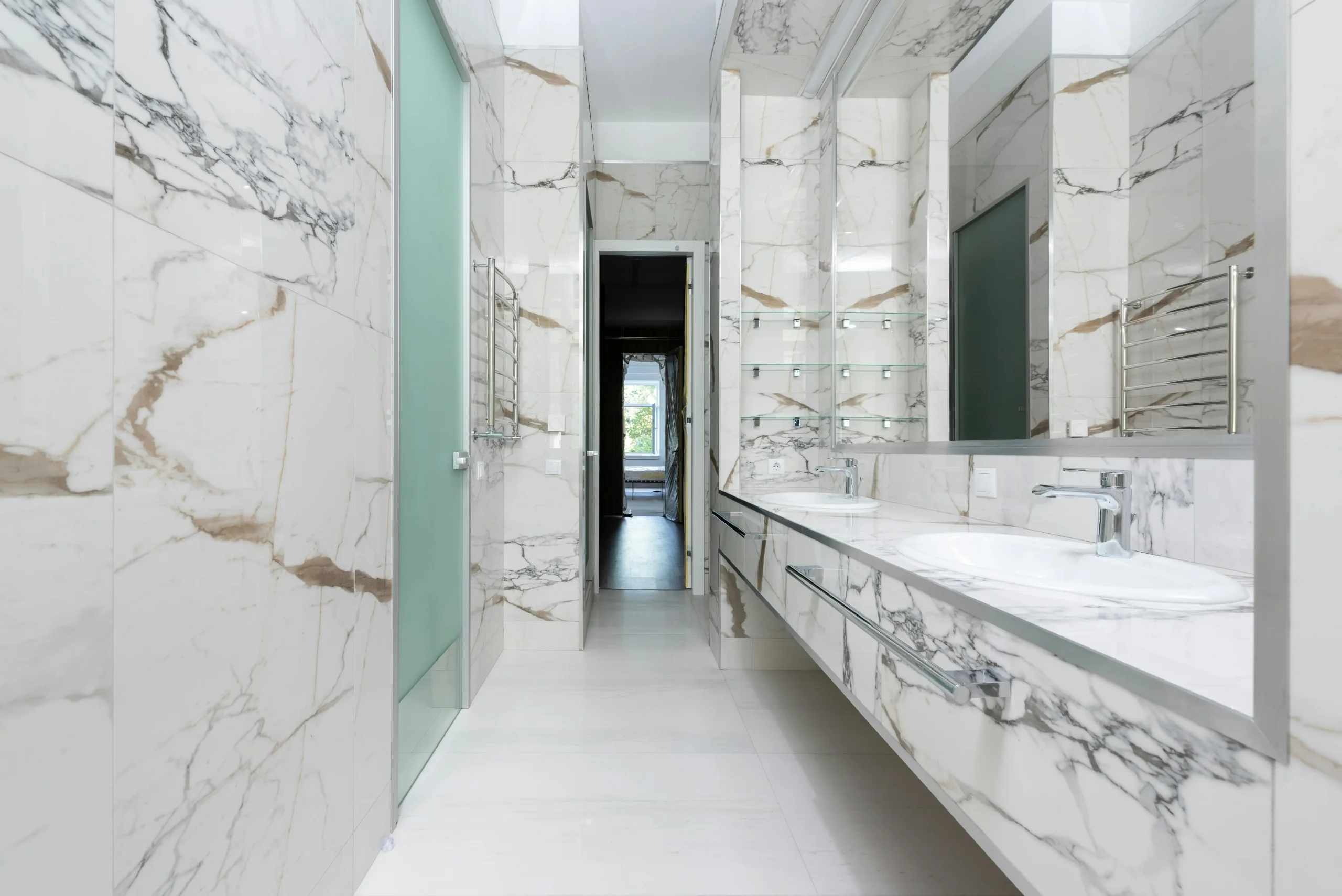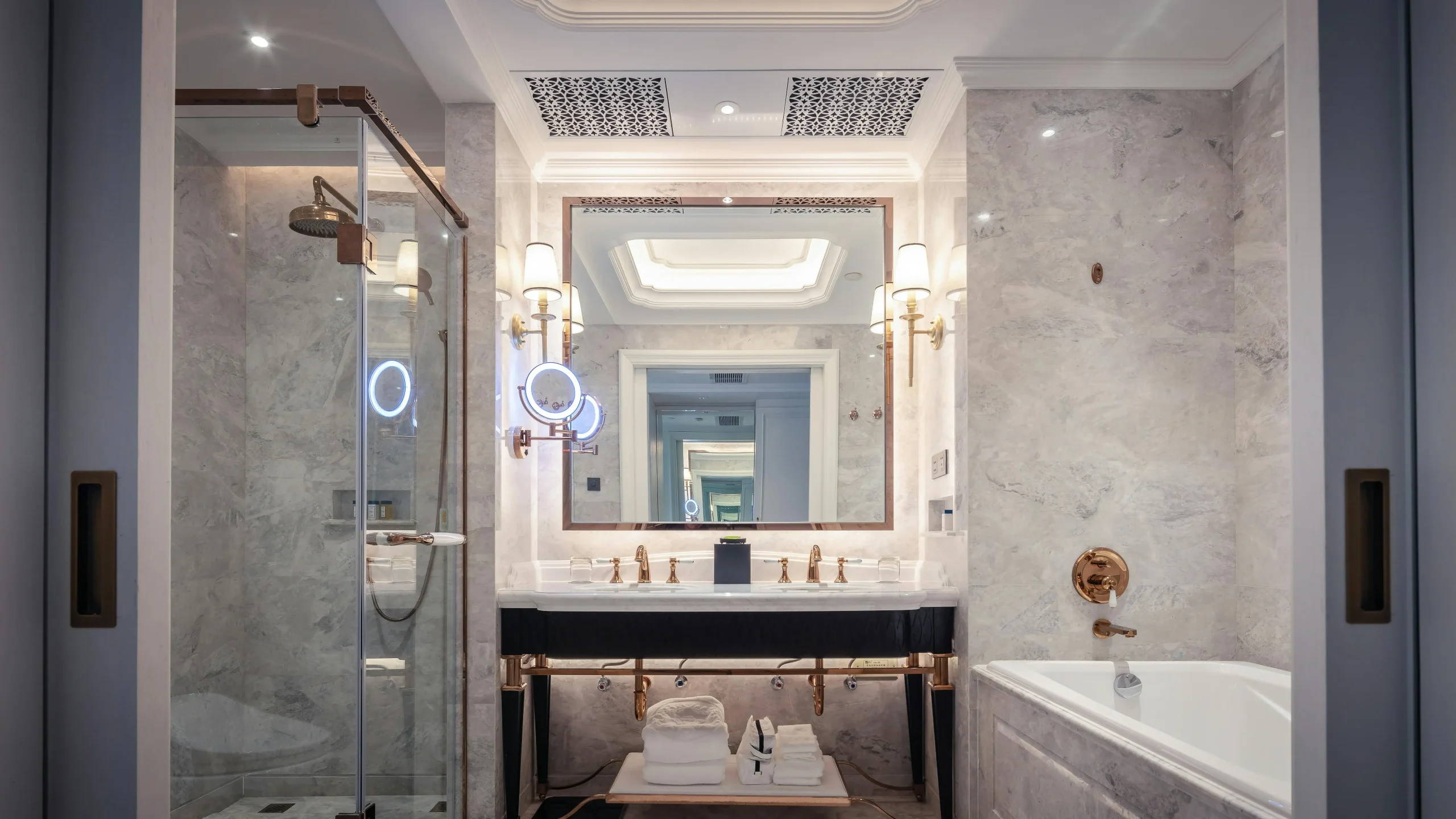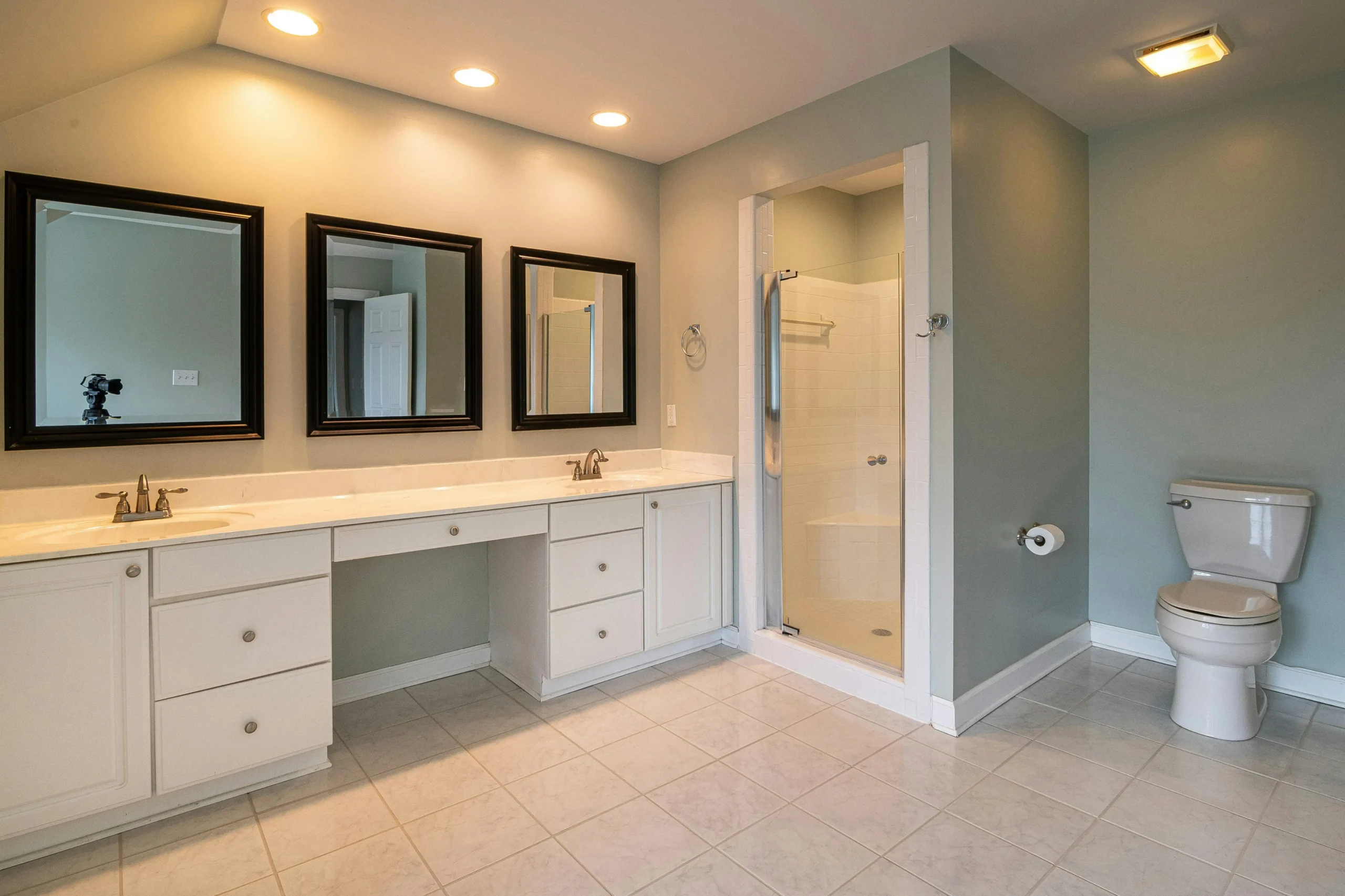Cost Factors for Maryland Bathroom Remodels
When planning a bathroom remodel in Maryland, several factors contribute to the overall cost. The size of the bathroom, the complexity of the design, and the materials chosen all significantly impact the final price. High-end fixtures and custom designs will raise the cost, while opting for more standard fixtures can help keep expenses in check. Labor costs also play a crucial role, and they can vary depending on location within Maryland. Additionally, if plumbing or electrical work is required, these changes can increase costs. Homeowners should plan for unexpected expenses, as hidden issues like water damage can arise during renovations.
Average Bathroom Remodel Costs in Maryland
On average, homeowners in Maryland can expect to spend anywhere from $10,000 to $25,000 for a bathroom remodel, depending on the size and scope of the project. Smaller remodels with fewer changes typically cost on the lower end of the spectrum, while larger, more intricate remodels with high-end materials can push the price upwards. The cost of a remodel in Maryland will also depend on the region, with urban areas like Baltimore often having higher labor costs than suburban or rural areas. A clear understanding of your project scope will help you develop a realistic budget.
What Does It Cost to Remodel a Bathroom in Baltimore?
In Baltimore, the cost of a bathroom remodel can range from $12,000 to $35,000, depending on the quality of materials, the extent of the renovation, and the size of the bathroom. A standard remodel with moderate updates might fall in the $12,000 to $18,000 range, while a high-end remodel with luxury materials and fixtures can exceed $30,000. Labor costs in Baltimore can be higher due to the demand for skilled contractors and the city’s cost of living. Homeowners should carefully consider their needs and budget before committing to a remodel.
Specific Remodeling Costs for Maryland Bathrooms
Specific costs for Maryland bathroom remodels can vary widely. For a mid-range remodel, the cost could range from $8,000 to $20,000, while high-end renovations could start at $25,000 and go up to $50,000. Some specific cost breakdowns include flooring, which can range from $2,000 to $4,000 depending on the material, and new fixtures or cabinetry, which could add another $3,000 to $7,000. Plumbing and electrical updates also factor into the price, and more extensive structural work could increase the total cost. Working with experienced contractors helps homeowners get a more accurate cost estimate for their specific project.
Understanding Bathroom Remodeling Cost
Understanding the cost of a bathroom remodel requires homeowners to consider multiple variables, including the size and layout of the space, the quality of materials, and labor requirements. For a basic renovation, the average cost is on the lower end of the spectrum, while major changes, such as moving plumbing or upgrading fixtures, can increase the price. Labor costs, depending on the project’s complexity, can make up a significant portion of the total cost. It’s important to get multiple quotes from contractors to better understand the pricing breakdown and manage your budget effectively.
Average Costs of Bathroom Remodel Materials and Fixtures
Material choices and fixtures are key determinants of bathroom remodel costs. For example, high-quality materials like granite countertops, custom cabinetry, and designer tiles can add thousands of dollars to the final price. On average, basic fixtures like standard sinks and toilets can cost $200 to $500 each, while luxury options like high-end faucets and tubs can range from $1,000 to $5,000. Tile work can range from $3 to $10 per square foot, depending on the material. The materials you choose for the floor, walls, and countertops will have the biggest impact on your remodel budget.
Examples of Remodeling Cost: Small vs. Upscale Bathroom Remodels
Small bathroom remodels typically cost between $5,000 and $10,000, which may include cosmetic updates such as replacing fixtures, installing new tiles, and repainting. Upscale remodels, on the other hand, can range from $20,000 to $50,000 or more, depending on the extent of the renovation and the luxury materials chosen. Upscale remodels often include custom cabinetry, designer fixtures, premium flooring, and potentially expanding the space with additional features like heated flooring or a walk-in shower. The key difference between the two types of remodels is the materials and the level of customization involved.
What’s Included in a Small Bathroom Remodel
A small bathroom remodel typically focuses on updating existing features and improving the overall aesthetic. This might include installing new tiles, replacing old fixtures, updating the lighting, and painting the walls. Homeowners may also choose to replace a vanity or add storage solutions to optimize space. While the scope is generally more limited, small remodels still offer significant improvements, especially with cost-effective updates like new faucets, showerheads, and mirrors. The overall cost will depend on the quality of materials and whether any structural changes are made.
What’s Included in an Upscale Bathroom Renovation
An upscale bathroom renovation involves a complete overhaul of the space with high-end materials and luxury features. Key elements often include custom cabinetry, designer tiles, premium countertops (such as marble or granite), and advanced fixtures like freestanding bathtubs or walk-in showers with high-tech showerheads. The layout may also be reconfigured to create a more spacious feel, potentially adding features like heated floors or improved lighting. These renovations typically require more time, labor, and expertise, which contributes to the higher overall cost.
Hiring a Contractor for Bathroom Remodels
Hiring the right contractor is crucial for a successful bathroom remodel. A good contractor will have experience with the specific type of remodel you’re planning, whether it’s a small update or a full renovation. Look for contractors who are licensed and insured, with a proven track record of completed projects and satisfied clients. Ensure that they provide detailed quotes and timelines for the project. Choosing the right contractor ensures that the work is done efficiently and to code, reducing the risk of issues arising during or after the remodel.
Tips for Reducing Bathroom Remodel Costs
Reducing bathroom remodel costs without sacrificing quality is achievable with some smart planning. One of the most effective strategies is to keep the existing layout and plumbing intact, as moving plumbing fixtures can be expensive. Opting for cost-effective yet durable materials, like vinyl or laminate flooring instead of hardwood or stone, can reduce costs. Prioritize essential upgrades and consider DIY for tasks like painting or installing new light fixtures. By sourcing materials at discount outlets or during seasonal sales, homeowners can save significantly on fixtures, tiles, and other supplies.
DIY Bathroom Remodel: Cost Savings
A DIY bathroom remodel can save on labor costs, but it’s important to know which tasks are suitable for DIY and which should be handled by professionals. Simple projects like painting, installing new hardware, and updating lighting are great opportunities for DIY, but tasks like plumbing, electrical work, or tile installation may require professional expertise. Keep in mind that while DIY can save money, it can also lead to additional costs if mistakes are made. To maximize savings, carefully assess your skill level and only tackle projects within your capabilities.
Final Thoughts on Bathroom Remodel Cost
Understanding bathroom remodel costs is key to achieving the desired outcome within budget. Carefully plan your remodel, considering factors such as material choices, labor costs, and the scope of the project. While smaller remodels can be completed at a lower cost, larger, more complex renovations with luxury finishes will naturally be more expensive. By working with an experienced contractor and setting a clear budget from the beginning, homeowners can ensure a successful bathroom remodel that enhances both the function and value of their home. Keep in mind that a well-executed remodel often provides a high return on investment, especially when targeting functional improvements and aesthetic updates.
FAQs: Bathroom Remodel Costs in Maryland
What are the primary factors influencing bathroom remodel costs in Maryland?
The main factors influencing bathroom remodel costs in Maryland include the bathroom size, the quality of materials and fixtures, labor expenses, and the project’s complexity. Urban areas typically have higher costs due to increased labor and material demand, while rural areas may offer more budget-friendly options. Whether the remodel is basic or upscale also significantly impacts costs.
How much does an average bathroom remodel cost in Maryland?
Bathroom remodel costs in Maryland range widely, from $5,000 for smaller updates to $50,000 or more for luxury renovations. The cost depends on factors like the bathroom’s size, the materials selected, and the extent of changes. Smaller projects typically involve surface-level upgrades, while comprehensive remodels require higher investments.
What is the average cost difference between small and upscale bathroom remodels in Maryland?
Small bathroom remodels, focusing on essentials like fixture updates and tiling, typically cost a few thousand dollars. In contrast, upscale remodels with luxury materials, custom features, and larger spaces often exceed $50,000. The difference lies in materials, square footage, and design intricacy.
How do geographic variations within Maryland impact bathroom remodel costs?
Remodel costs in Maryland vary by location. Urban areas like Baltimore tend to have higher labor and material expenses due to demand, whereas rural regions offer more economical options. Homeowners should consider these geographic differences when budgeting for renovations.
How can homeowners manage bathroom remodel costs effectively in Maryland?
To manage costs, homeowners in Maryland should set a clear budget, prioritize upgrades, and select cost-effective materials. DIY involvement in minor tasks, like painting, can reduce labor expenses. Consulting multiple contractors ensures competitive pricing and helps in making informed financial decisions.

